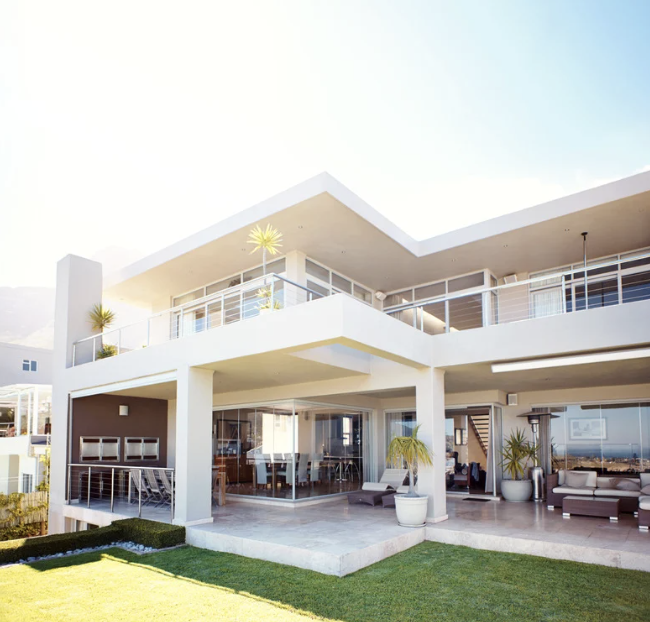The Resilience of the Luxury Home Market Amid Economic Concerns
In recent years, the luxury home market has demonstrated remarkable resilience, even in the face of broader economic concerns that have impacted other sectors. Despite fluctuations in the economy, including inflation rates, supply chain challenges, and geopolitical tensions, the demand for high-end properties remains steadfast. This phenomenon can be attributed to a combination of factors, including sustained demand from affluent buyers and a limited inventory of luxury homes.
Unpacking Sustained Demand in the Luxury Sector
A significant driver of the luxury home market’s continued strength is the unwavering demand from wealthy individuals and families. The past few years have seen an influx of high-net-worth individuals seeking exclusive properties, driven by several factors. For many, the pandemic prompted a reevaluation of lifestyle choices, leading them to prioritize living spaces that provide comfort, luxury, and privacy. Additionally, low-interest rates during much of this period made financing more appealing, further encouraging investment in luxury real estate.
Limited Inventory: A Balancing Act
Another crucial element contributing to the robust performance of the luxury home market is the limited inventory of available properties. With many luxury homeowners opting to stay put due to uncertainty in the housing market, new listings have been scarce. As a result, the supply of high-end homes has not kept pace with demand, creating a competitive landscape. This scarcity drives prices up, leading to bidding wars and a significant increase in home values in prime locations.
Regional Variations in Luxury Home Sales
While the strengthened luxury home market is a nationwide phenomenon, regional variations are evident. Major metropolitan areas such as New York City, Los Angeles, and Miami continue to experience heightened interest from buyers, attracted by lifestyle amenities and investment opportunities. Alternatively, some suburban and rural locations have witnessed an increase in luxury home sales as individuals seek serene environments away from densely populated areas. As buyers consider relocation, the trend reflects a broader shift in preferences that influences luxury real estate trends across the country.
Investment Opportunities and Market Growth
The luxury home market also became a promising investment opportunity, appealing to diverse buyers, including international investors and second-home purchasers. Regions with strong economic fundamentals, such as tech-driven cities, have seen consistent buyer interest, adding to the allure of the luxury segment. The perception of real estate as a secure investment, particularly in turbulent times, continues to attract affluent buyers looking for long-term value retention.
Challenges Ahead: Keeping an Eye on Economic Indicators
Despite the current strength of the luxury home market, challenges remain on the horizon. Economic indicators such as rising interest rates and potential shifts in government policy could affect buyer sentiment and market dynamics. If inflation continues to rise, it could impact the purchasing power of affluent buyers. Additionally, any economic slowdown might prompt a reevaluation of investment strategies, leading some to reconsider their positions in luxury real estate.
Conclusion: A Market to Watch
As the luxury home market continues to evolve, it remains crucial for stakeholders, including buyers, sellers, and investors, to stay informed about market trends. The sustained demand and limited inventory are key factors underpinning the current momentum of high-end real estate. However, the potential for economic shifts necessitates vigilance as stakeholders navigate an unpredictable landscape. Ultimately, the luxury home market’s resilience highlights the enduring value placed on exclusive properties, making it a sector worthy of attention in the coming years.
FAQs
1. What factors are driving the demand for luxury homes?
The demand for luxury homes is driven by various factors including low-interest rates, affluent buyers reevaluating their living situations post-pandemic, and an overall push for more spacious and exclusive living environments.
2. How does limited inventory affect the luxury housing market?
Limited inventory creates a supply-demand imbalance in the luxury market, driving up prices and fostering competitive environments among buyers, often resulting in bidding wars for desirable properties.
3. Are luxury homes still a good investment during economic uncertainty?
Yes, many perceive luxury homes as a secure investment, particularly during turbulent economic periods, as they tend to hold their value well compared to other asset classes.
4. Which regions are currently leading in luxury home sales?
Major metropolitan areas like New York City, Los Angeles, and Miami are leading the way in luxury home sales, but emerging suburban and rural areas are also witnessing increased buyer interest.
5. What challenges could affect the luxury home market in the near future?
Potential challenges include rising interest rates, economic slowdowns, and changes in government policies, all of which could influence buyer sentiment and market dynamics.

